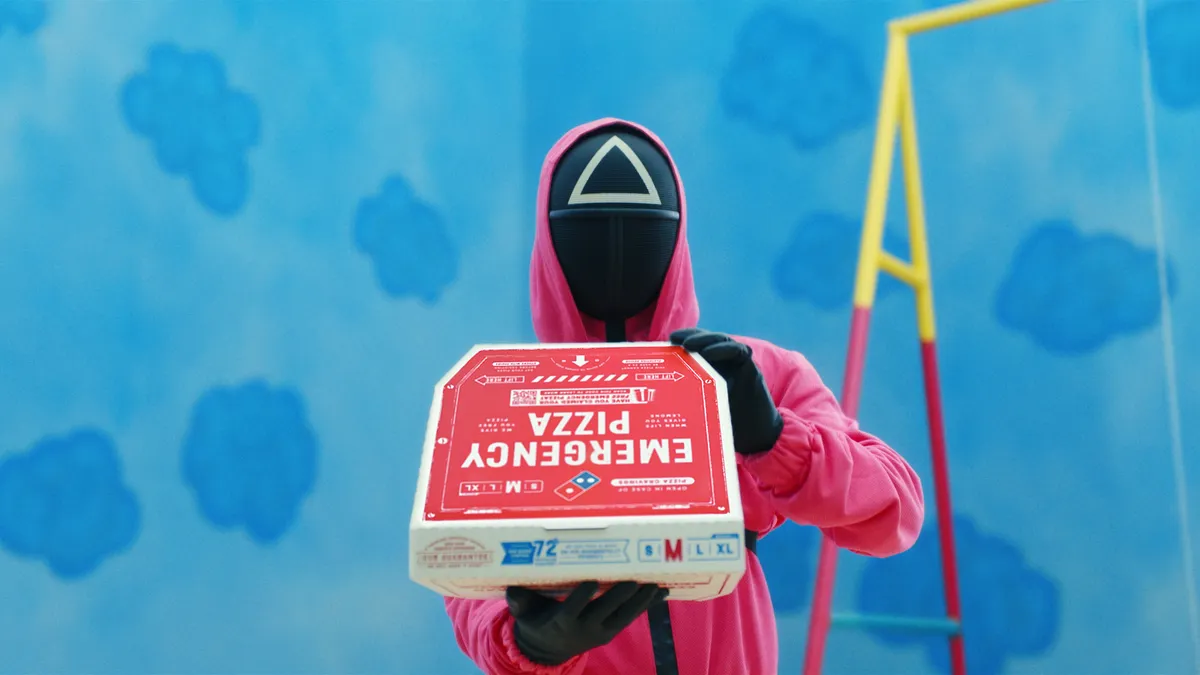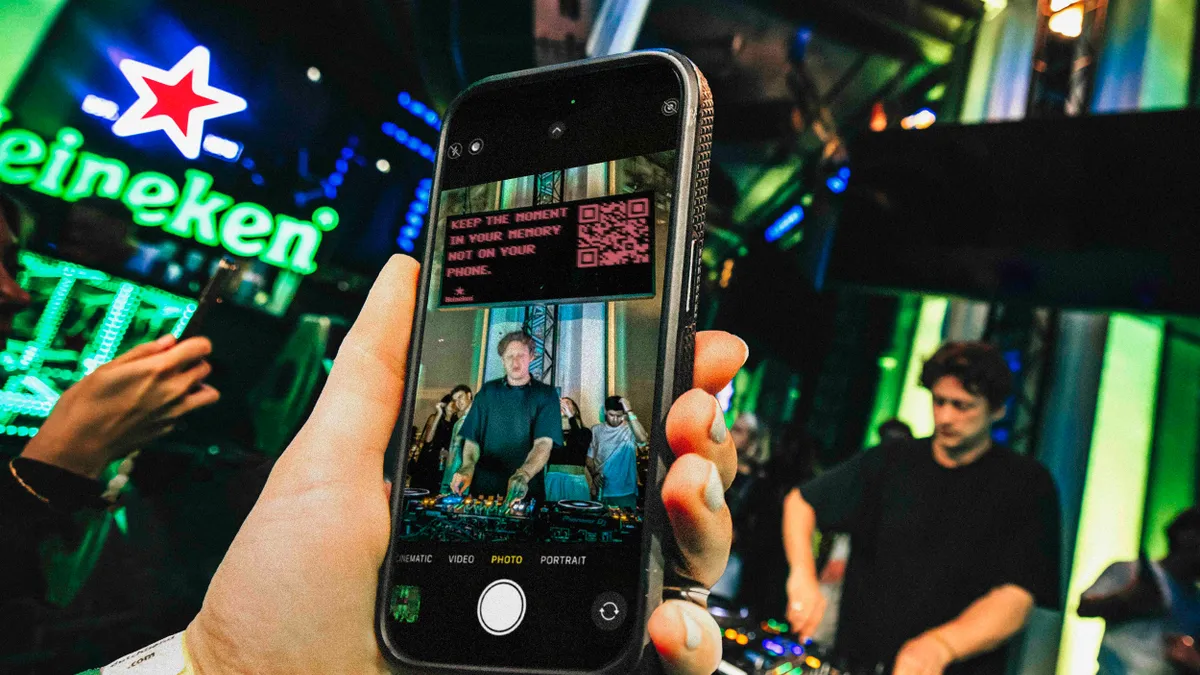Culture is like the Force in "Star Wars," according to Ryan Ford, president and chief creative officer of lifestyle marketing collective Cashmere and a self-proclaimed "Star Wars" nerd.
"It's all around us; it permeates all that we do," he said. "It can't be controlled. It can't be contained. It can only be harnessed for short periods of time."
Given how Ford and his agency have been making waves around the advertising industry, you might even call the executive the Yoda of culture. In May, Cashmere won a Webby award for an out-of-home campaign that featured motion-activated billboards to promote Snoop Dogg's 19 Crimes wine brand. In June, the shop was named one of Ad Age's A-List Standout Agencies. And, in August, Taco Bell named the agency its first culture agency of record.
Following this whirlwind summer, Cashmere this fall merged with marketing and advertising services company Media.Monks, which is owned by S4 Capital, the holding company created by Martin Sorrell after he left WPP. The deal gives Cashmere a global platform through which it can understand and influence culture, per Ford.
"It allows us to take the culture discussion worldwide," Ford said of the merger. "The conversations we're having might be informed by America, but they have global implications. Black Lives Matter was a global thing. The hottest movies and shows on Netflix are global things. Aligning with Media.Monks helps us to delve deeper into how this is impacting brands around the world."
Below, Ford explains why brands today must not merely consider culture, but truly understand it, if they want to thrive. He also touches on the difference between culture and purpose, and how Ben & Jerry's succeeds at both.
The interview has been edited for clarity and brevity.
MARKETING DIVE: What does it mean to be a "culture agency of record"?
RYAN FORD: It's a natural evolution of the business. There was no need for a multicultural agency of record before we started to think about consumers as diverse groups. Then, everyone needed one. There was no need for a digital agency of record until we needed specialists in digital media. You saw the rise of multicultural agencies and digital agencies of record when there was a shift in [how the business operated]. The driving force of 2021 is culture.
So why isn't there an agency that's putting together your cultural playbook, that's helping you understand where you fit into culture right now, and how that can shift at a moment's notice? Whether the dominant force is Black Lives Matter or #StopAsianHate, or whether it's looking at a dance that becomes a worldwide trend on TikTok, that is culture. A culture agency of record takes all that in and asks, how can you build relationships with these communities? How can you build deeper, stronger relationships with these communities that are sometimes expecting different things from you simultaneously? And how is that put together in a way that will inform how you do your media buys or how you do your product innovations?
Why is cultural awareness so important in 2021?
FORD: I think more and more, especially after the height of the pandemic and events of 2020 and 2021, we're really thinking about who we're inviting in and why we're inviting them in. When we live in an environment like we're living in now — where we spend a lot more time at home whether you like it or not — you have to uphold the sanctity of your belief system. And since we live in a time where I can order anything online, then why should I order this brand and bring it into my world? If I'm going to do that, I want to know their cultural outlook.
How does social media shape culture?
FORD: Culture can change very quickly. In 2020, one of the Trumps took a picture with Goya beans. I went into my kitchen and asked whether we had Goya beans in our pantry, declaring "We're not a Goya beans household." How did I find out about that? Social media. You have to pay attention to the trends and what people are talking about.
Now, everyone knows about everything. That's a different landscape in which to thrive. There are so many distractions in the world. You can't hold my attention in the same way you used to. There are all these types of things that are hard to understand unless you understand the culture of that moment. Why are you advertising in this neighborhood or on this billboard?
With the rise of social media, people are everywhere all the time. And maybe I have a lot less in common with my neighbor than with a group of immigrant kids in the Brixton area of London that I connect with every day through Twitch. Media and culture have always coexisted, and if media can harness culture in the right way at the right time, they can build empires off of it. Viacom did that with MTV.
How do you use culture and social media to shape the message?
FORD: It's understanding that what is going to happen is going to happen fast. The old media was about talking to as many people as I can at one time. I would pay X amount of dollars because it reaches Y amount of people. But that model is no longer true.
What we like to say is, "Specific is the new broad." The Facebook you look at is not the Facebook I look at. If you can't have a specific conversation with a specific group in authentic and nuanced ways, you have no opportunity to talk to anybody else. If you are talking to African-American millennial mothers who are gamers and sneakerheads in a way that they understand, I respect the fact that you're trying to reach them, even if I am not all of those things. That gives your brand more credibility in my mind, even if I don't understand all of what you're talking about.
Is there a difference between culture and purpose?
FORD: I think they can align at different times, but they are different. Culture is everywhere and it permeates everything. It can be harnessed and understood, but it can't necessarily be controlled. Purpose is aligned with individuals. They have to work together to be effective.
When all of those brands put a black square on their social media for a day for Black Lives Matter, Ben & Jerry's came out and said, "We're against White supremacy." That's purpose and that's culture at the time. And it's ice cream. It makes sense because it's what Ben & Jerry's has been doing this whole time, like it or not. There are other people who are totally against that, but then there's another ice cream for them.






















